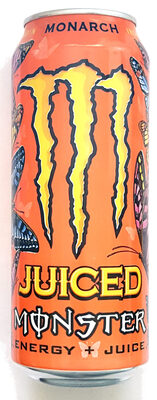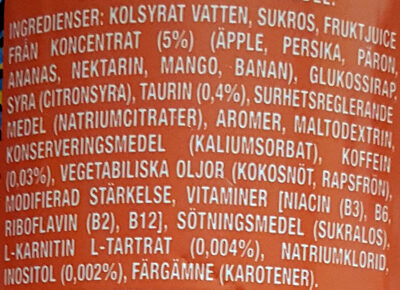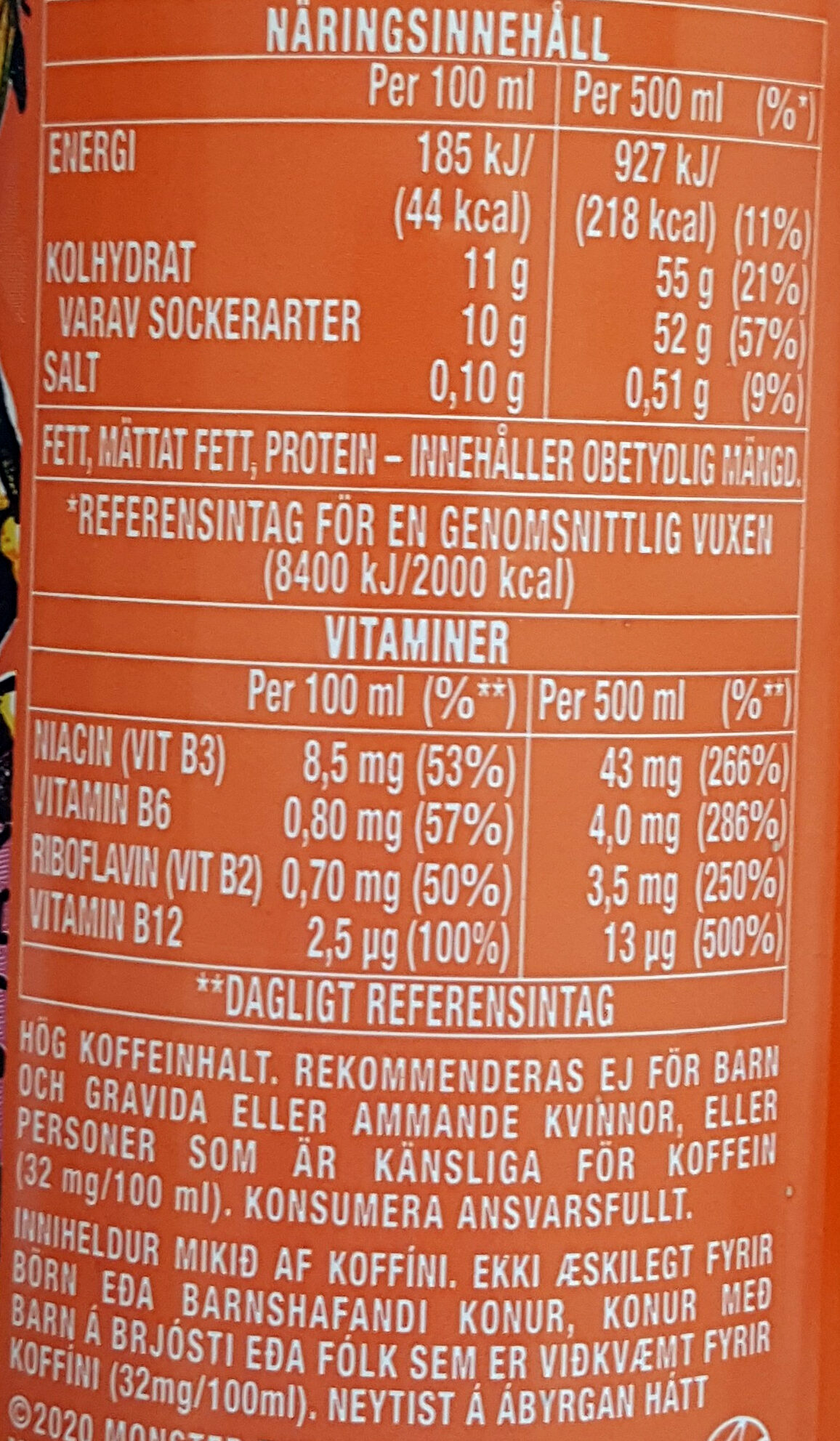Juiced Monster Monarch Energy + Juice - 500 ml
This product page is not complete. You can help to complete it by editing it and adding more data from the photos we have, or by taking more photos using the app for Android or iPhone/iPad. Thank you!
×
Barcode: 5060751215363 (EAN / EAN-13)
Common name: Kolsyrad energidryck med 5% fruktjuice från koncentrat, taurin, L-karnitin, inositol och B-vitaminer. Innehåller socker och sökningsmedel.
Quantity: 500 ml
Packaging: Metal, Recyclable Metals, Aluminium, sv:Aluminum
Brands: Monster, Monster Energy
Categories: Beverages, Carbonated drinks, Artificially sweetened beverages, Energy drinks, Energy drink with sugar, Sweetened beverages
Labels, certifications, awards:
Not advised for specific people, Not advised for children and pregnant women, Not advised for pregnant women
Stores: City Gross
Countries where sold: Sweden
Matching with your preferences
Report a problem
Data sources
Product added on by akitainu
Last edit of product page on by packbot.
Product page also edited by openfoodfacts-contributors.












